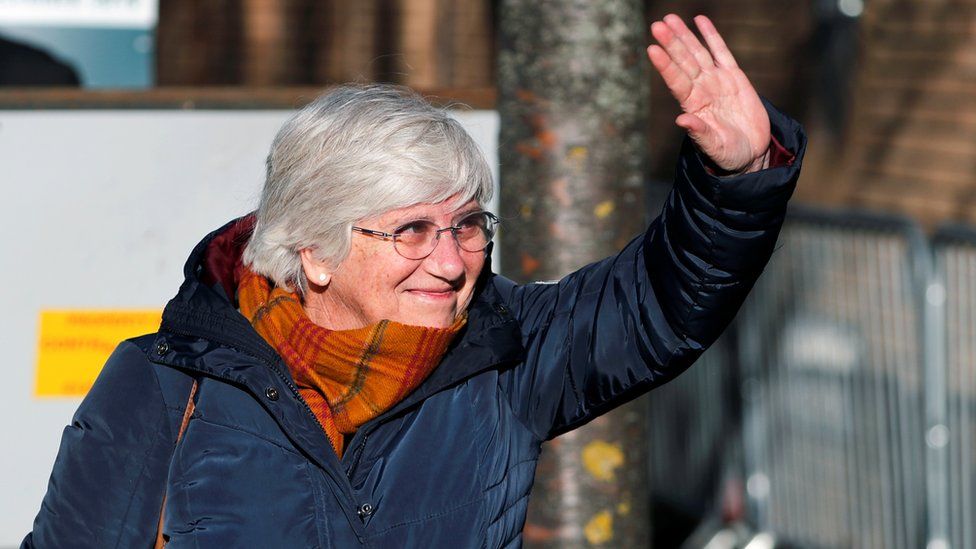Ponsati's role as MEP 'could halt extradition'
- Published

An academic at a Scottish university may escape extradition to Spain because she is to become a member of the European parliament.
Clara Ponsati faces a charge of sedition over her role in Catalonia's unsanctioned independence referendum in 2017.
Her legal team has argued that her position as an MEP gives her immunity.
Prof Ponsati, who teaches at St Andrews, appeared at Edinburgh Sheriff Court for a preliminary hearing.
Her lawyers presented Sheriff Nigel Ross with the names of the Spanish politicians they intend to cite in court - including Prime Minister Pedro Sanchez.
Aamer Anwar, Prof Ponsati's solicitor, explained outside the court that his client will become an MEP because of the UK leaving the EU.
He said "When the UK leaves the European Parliament on January 31 its MEPs will lose their seats.
"At present, Spain is set to be awarded five extra seats. If that is so, Clara Ponsati is on the list to be one of the five MEPS and will become an MEP shortly after January 31 and therefore she will have immunity.
"The Spanish authorities ought to withdraw the warrant against Clara if and when she becomes immune - this is not likely to happen.
"When Clara becomes an MEP an assessment will be required to be carried out as to how it will affect the warrant proceedings - especially if once again Spain shows no respect for the rule of international law."
The Spanish Electoral Commission has confirmed that Prof Ponsati will become one of her country's representatives at the European parliament.
The full hearing of the case in the Scottish court is likely to start on 11 May.
Prof Ponsati faces a single charge of sedition, which relates to the organising of the referendum in her role as education minister in Catalonia.
She could be sentenced to 15 years behind bars if convicted, with nine other Catalan officials given jail sentences of between nine and 13 years for the same offence in autumn last year.
- Published14 November 2019
- Published6 November 2019
- Published5 November 2019
- Published5 November 2019